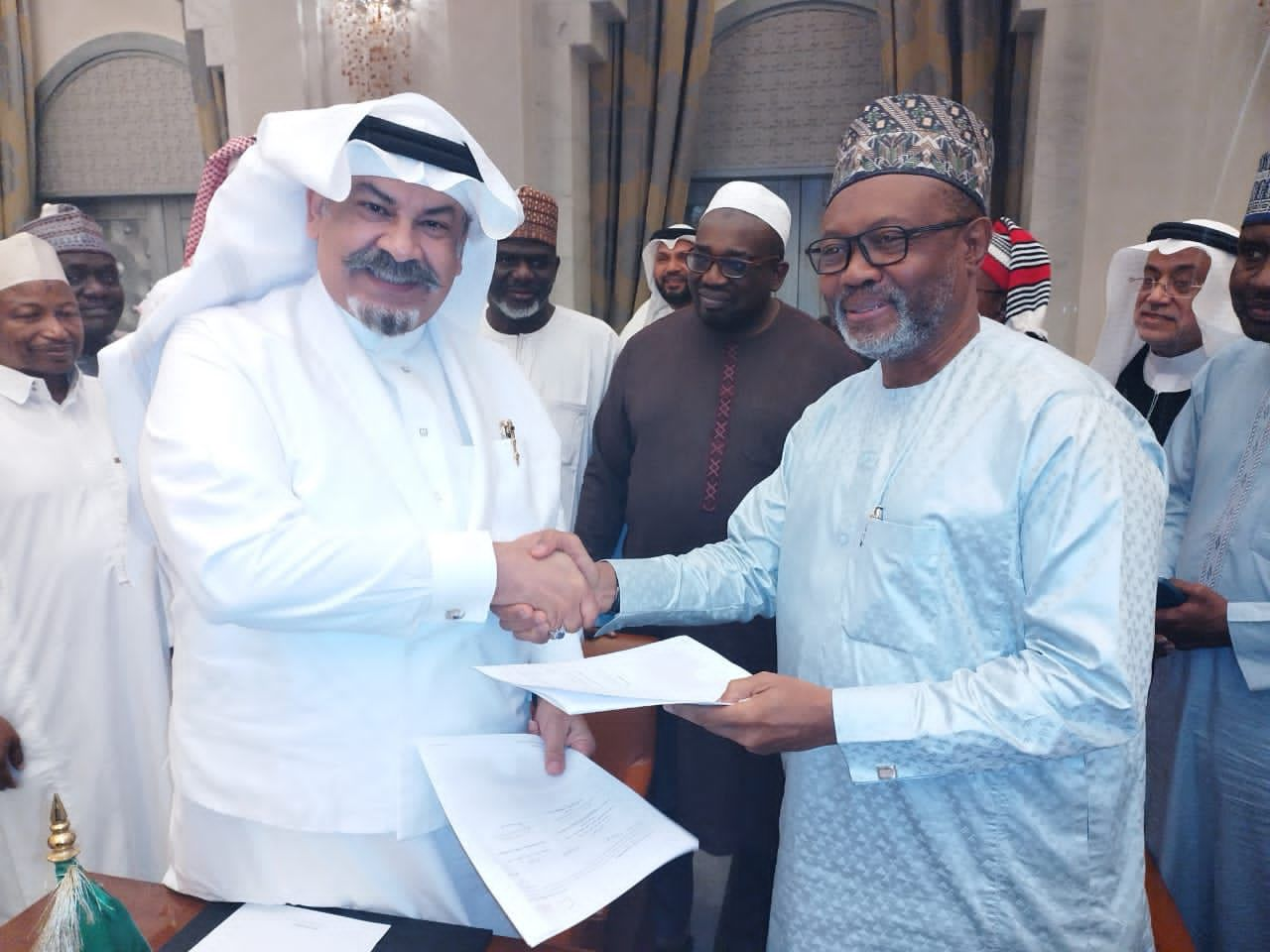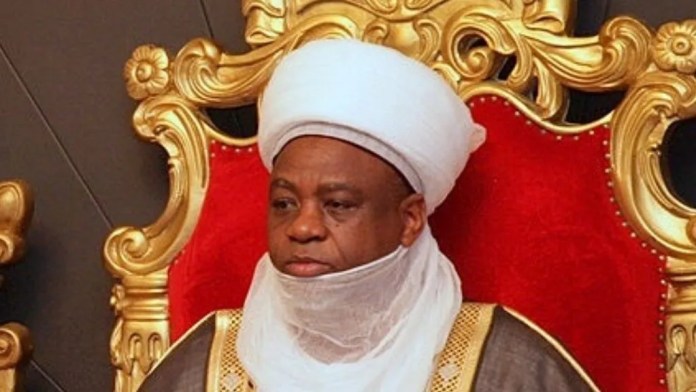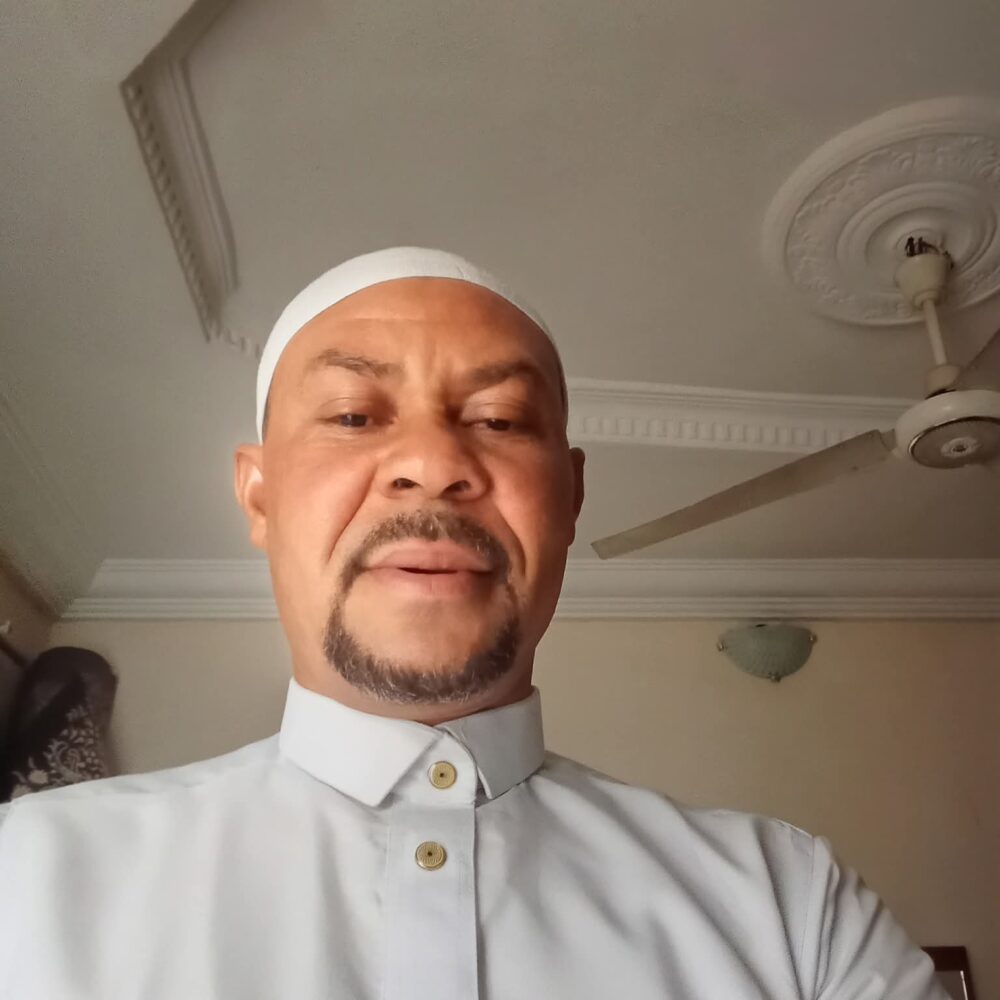Malam Jalal Ahmad Arabi, the Chairman of National Hajj Commission of Nigeria (NAHCON) signed Hajj 2024 agreement with Ithraa Al Khair Company yesterday Sunday 14th January at the Hilton Convention Hotel, Jabal Umar, Makkah.
This agreement contains details of service delivery expected from the group and the cost of each service along with penalties in case of violation by any party.
Signing of this agreement followed careful survey of packages offered by other Mutawwif companies thet met with the NAHCON team and others during the just concluded Hajj and Umrah exhibition.
During signing of the agreement alongside the Chairman of the Ithraa Mutawwif Company, Dr Ahmad Sindhi, Malam Arabi cautioned officials of the company to discharge their responsibilities to the pilgrims with all sincerity as contained in the pact. He emphasized that NAHCON will be involved fully in monitoring service provision from implementation of agreement to the end of execution. The NAHCON helmsman expressed that this is time to start the relationship afresh between NAHCON and the Mutawwif Company, on fresh terms built on trust. He called on Dr Sindhi to make sure the errors that happened in the past do not happen again.
In response, Dr Sindhi promised to continue with an open line of communication to fix any problem immediately before it escalated. He assured of the Company’s readiness for teamwork with the singular objective of serving pilgrims well. In addition, Dr Sindhi explained that working with NAHCON along the years has made them smarter and better that put them in a position to always improve.
Tawafa establishments are a key part of the modern Hajj operations. Beginning from time immemorial, Mutawwif job used to be a hereditary responsibility to pilgrims at a time when pilgrims used to stay in Makkah for months before commencement of Hajj proper. Particular Makkan families were known for this role generation after generation. Back then, the Mutawwif hosts would manage their pilgrims’ affairs from time of arrival until departure. The families would dwell the pilgrims in their homes, cooked for them, washed their clothes, celebrated them among family and friends and made them part of their special occasions. Each Mutawwif was assigned certain number of pilgrims based on ability from a 100 to thousands where there is capability.
When it was time for Hajj rituals, the Mutawwifs would take their pilgrims to the holy sites to perform their rites. Their job was purely service to pilgrims free of charge.
King Abdullaziz standardized the system into Mutawwif Establishments that provide good quality services to pilgrims. These establishments were later appointed by the Ministry of Hajj and Umrah to guide and serve pilgrims.
Mutawwifs have now been commercialized into companies withthe task of pilgrims’ hospitality. They are charged with overseeing and organizing local transportation, securingpilgrims camps in masha’ir, providing technological and manualsecurity, catering services, sanitation etc. Mutawwifs are required to have full knowledge of the roads of Makkah and the holy sites as well as the Hajj rituals.
In another development, countries with large number of pilgrims have been mandated to sign the Tafweej (group movement) Memorandum of Understanding. The MoU provides a framework that each country must align itself with on Saudi Arabia’s system of moving pilgrims in groups especially during the five Hajj days. The Secretary to the Commission Dr Rabi’u Abdullahi Kontagora signed the Mou on behalf of the Commission.
It would be recalled that the NAHCON Chairman, Malam Ahmad Arabi had earlier advised private Hajj managers present in the Kingdom to utilize the opportunity offered by the recently concluded Hajj and Umrah Exhibition to identify alternative service providers. This organized survey promoted full participation of the Nigerian Hajj industry in the exhibition. Malam Arabi’s strategic management prowess hence bagged for Nigeria award during the closing ceremony of the exhibition.
Usara is Assistant Director, Public Affairs, NAHCON





